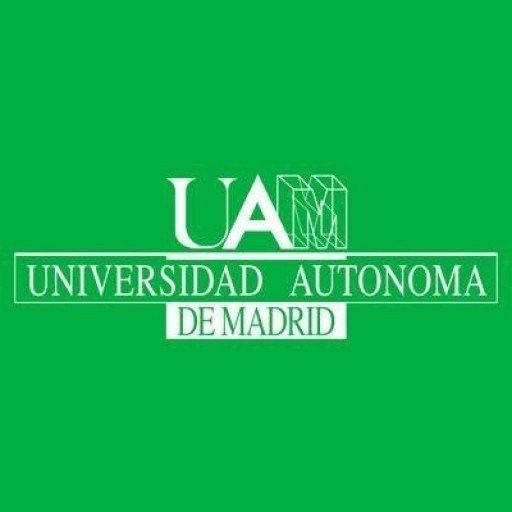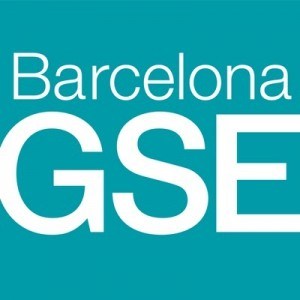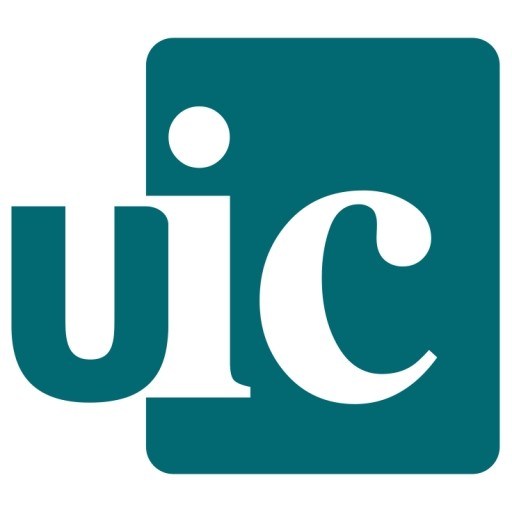Photos of university
The Master in Theoretical Chemistry and Computational Modelling at the Autonomous University of Madrid is a highly specialized postgraduate program designed to equip students with advanced knowledge and practical skills in the fields of theoretical chemistry, computational chemistry, and molecular modelling. This program aims to prepare students for research careers in academia, industry, and research laboratories, focusing on the development and application of computational techniques to solve complex chemical problems.
Throughout the coursework, students will explore fundamental principles of quantum mechanics, statistical mechanics, and chemical thermodynamics, which underpin modern theoretical approaches. They will learn to utilize cutting-edge computational tools and software for simulating molecular structures, reaction mechanisms, and spectroscopic properties. The program emphasizes a strong interdisciplinary approach, integrating physics, chemistry, and computer science to foster a comprehensive understanding of molecular systems at the atomic and electronic levels.
Additionally, students gain hands-on experience through laboratory exercises and research projects, allowing them to apply theoretical models to real-world scenarios. The curriculum includes modules on molecular dynamics, quantum chemistry calculations, density functional theory, and cheminformatics. Students are also encouraged to develop their own research ideas under the mentorship of experienced faculty members, preparing them for thesis projects and future scientific contributions.
Graduates of this master's program will have the ability to critically analyze chemical phenomena using computational methods, design novel molecules and materials, and contribute to innovations in pharmaceuticals, materials science, environmental chemistry, and nanotechnology. With a strong emphasis on research and innovation, the program also facilitates access to doctoral studies and postgraduate research opportunities.
The Autonomous University of Madrid provides a dynamic academic environment with state-of-the-art laboratories and collaborations with industry and research centers. Graduates leave well-equipped with the theoretical background, technical expertise, and research experience necessary to excel in highly competitive scientific and industrial settings. The Master in Theoretical Chemistry and Computational Modelling prepares students to become experts capable of tackling contemporary challenges in chemistry through advanced computational strategies.
The Master in Theoretical Chemistry and Computational Modelling at the Autonomous University of Madrid is a comprehensive postgraduate program designed to equip students with advanced knowledge and practical skills in the fields of theoretical chemistry, computational modelling, and simulations. This program aims to prepare graduates for careers in research, academia, and industry by providing a solid foundation in the fundamental theories and methodologies used to simulate chemical systems at the atomic and molecular levels.
Throughout the program, students will explore a wide range of topics including quantum chemistry, molecular dynamics, statistical mechanics, electronic structure calculations, and chemical informatics. The curriculum combines theoretical lectures with practical laboratory sessions, computer lab work, and project-based learning, enabling students to acquire hands-on experience in the use of leading computational tools and software used in modern chemical research.
Students will learn to model complex chemical phenomena, analyze the properties of molecules and materials, and interpret computational results with scientific rigor. The program emphasizes both the conceptual understanding of the underlying physical principles and the technical skills necessary for computational research. Special attention is given to the development of problem-solving abilities, scientific communication, and the use of programming languages such as Python and Fortran for scientific computing.
In addition to core coursework, students are encouraged to participate in research projects, internships, and collaborations with industry partners, fostering a multidisciplinary approach and real-world applications. The program also offers seminars, guest lectures from experts in computational chemistry, and opportunities to publish scientific work, preparing students for future academic or professional pursuits.
Graduates of the Master in Theoretical Chemistry and Computational Modelling will be capable of tackling complex chemical questions, designing and executing computational experiments, and contributing to innovations in chemical research, materials science, pharmaceuticals, and environmental sciences. The program is delivered through a blended learning approach, combining on-campus instruction with digital resources to promote flexible learning pathways. Upon completion, students will be well-equipped to pursue doctoral studies or immediate employment in high-tech industries and research institutions focused on chemical modelling and simulation.
The Master in Theoretical Chemistry and Computational Modelling at the Autonomous University of Madrid requires applicants to hold a bachelor's degree in Chemistry, Chemical Engineering, Physics, or a related scientific discipline. Candidates must demonstrate a strong academic background in subjects such as physical chemistry, quantum mechanics, thermodynamics, and computational methods. Proficiency in English is essential, typically evidenced by a recognized language certificate, as the program's instruction is primarily delivered in English. Applicants are also expected to submit a curriculum vitae highlighting relevant academic and research experience, along with a motivation letter explaining their interest in the field and career objectives.
In addition to academic credentials, candidates should provide academic transcripts that detail their undergraduate coursework and grades, establishing their suitability for advanced study in this specialized area. Letters of recommendation from academic professors or professionals familiar with the applicant's research aptitude and academic performance are strongly advised to strengthen the application. Prior experience with scientific programming languages such as Python, Fortran, or C++ can be advantageous, as is familiarity with computational chemistry software like Gaussian, VASP, or Materials Studio.
Applicants are required to complete an online application form through the university's admissions portal, paying an application fee. The selection process involves reviewing academic achievements, research experience, motivation, and language proficiency. Shortlisted candidates may be called for an interview, conducted either in person or via video conferencing, to assess their motivation and suitability for the program. It is also recommended that applicants have analytical skills and the capacity to undertake independent research, as evidenced by any previous research projects or publications.
The program aims to foster high-level expertise in theoretical and computational chemistry, preparing students for careers in academia, research institutes, or industry sectors such as pharmaceuticals, materials science, and energy. To enhance their candidacy, applicants are encouraged to engage in relevant research activities during their undergraduate studies and to demonstrate a clear understanding of the scientific challenges addressed by theoretical chemistry and computational modelling. Meeting these requirements ensures that students are well-prepared for the rigors of the master's curriculum, which integrates advanced coursework, practical laboratory sessions, and a research project culminating in a thesis.
The Master in Theoretical Chemistry and Computational Modelling at the Autonomous University of Madrid offers various financial aid options to assist students in funding their studies. Prospective students can explore scholarships provided directly by the university, which aim to support academically meritorious and financially disadvantaged students. These scholarships typically cover partial tuition fees and sometimes provide stipends to offset living expenses. Applicants are usually required to submit an application form along with documentation proving academic achievement and financial need, with deadlines set prior to the commencement of the program. Additionally, there are external scholarships available from government agencies, research councils, and private foundations that students can apply for based on merit, nationality, or research interests. The university also promotes grants and sponsorship opportunities from collaborating research centers and industry partners, which may include paid research assistant positions or internships that contribute to a student’s financial stability while gaining practical experience. International students are encouraged to seek scholarships designed specifically for foreign students, which are often competitive and require a separate application process. The university’s scholarship office provides comprehensive guidance on eligibility criteria and application procedures. Furthermore, students may consider applying for student loans if available locally through financial institutions, although this option involves repayment obligations. To support students in identifying suitable funding sources, the university’s website offers detailed information and regular updates on scholarship opportunities, application procedures, and deadlines. The program’s financial support framework is designed to make higher education accessible to a diverse range of students, fostering academic excellence and international mobility. Students are advised to start the application process early to maximize their chances of securing funding and to ensure adequate planning for their educational expenses. In summary, financing studies for the Master in Theoretical Chemistry and Computational Modelling involves a combination of university scholarships, external grants, industry-sponsored programs, and personal or family resources, with detailed guidance available from the Autonomous University of Madrid’s official channels.
The Master in Theoretical Chemistry and Computational Modelling at the Autonomous University of Madrid offers a comprehensive education in advanced theoretical and computational techniques applicable to the field of chemistry. Designed for graduates with a background in chemistry, physics, or related disciplines, the program aims to equip students with the necessary skills to conduct high-level research and develop innovative solutions to complex chemical problems. The curriculum combines coursework, laboratory work, and research projects, emphasizing the practical applications of computational modeling in understanding chemical phenomena at the molecular and atomic levels. Students will engage with topics such as quantum chemistry, molecular dynamics, statistical mechanics, and chemical informatics. The program also emphasizes the development of programming skills and familiarity with specialized software tools used in computational chemistry. Collaboration with research groups and participation in seminars and conferences are integral parts of the training, fostering an environment of scientific exchange and professional growth. Graduates of this master's program are prepared for careers in academia, research institutes, or industries requiring expertise in computational approaches to chemistry, including pharmaceuticals, materials science, and environmental chemistry. The Autonomous University of Madrid supports student mobility and collaborates with national and international research centers, providing students with opportunities for internships and joint research projects. Financial aid options and scholarships are available to eligible students, aiming to promote academic excellence and research innovation in this specialized field.





